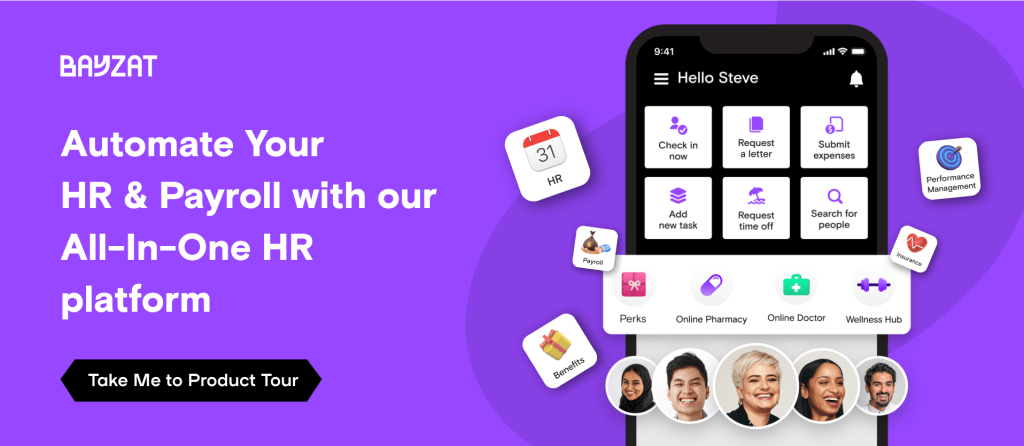Remote work has grown significantly in the past year in response to the uncertainties brought by the global pandemic. Statistics revealed a whopping 140% increase in remote workers since 2005. But remote work can also provide employees and employers with unique benefits.
What is remote work?
Remote work has many names. It’s sometimes referred to as work from home or telecommuting and it is a type of flexible work. When you are working remotely, you can work from a location that’s outside of the traditional office. Instead of making your way to the office, you can work from home or another location that’s not the company’s place of work.
How remote work benefits employees?
Remote work has been around for a while now and it has been made easier with the invention of different digital solutions. But the most recent surge in people working from home was largely down to necessity. It’s estimated that Covid-19 forced 47% of employees to work remotely in Australia, France and the United Kingdom. Even in Japan, which didn’t institute a nationwide lockdown, the teleworking rate went up from 10% to 28%.
Perhaps more interestingly, many employees don’t want to return to the offices after the pandemic. In the UAE, 86% of employees want to continue working from home. This could be explained by the benefits employees enjoy when they are telecommuting.
The six biggest benefits to employees include:
- Learning and development opportunities
Remote work can offer plenty more development opportunities for employees. Taking online courses can offer an easier way to maintain talent development within an organisation.
- Flexible work hours
One of the biggest selling points of working from home is the flexibility it brings. While traditional, office-based work is often strictly timed to the most ‘common’ working hours, remote work is less rigid. You can be much more flexible with the work hours and choose to work at times you’re the most productive.
- Better work/life balance
Work/life balance is one of the biggest issues modern employees complain about. It’s not just about work hours. Going to work can take a big chunk of people’s lives. When you remove the commute and introduce flexible work hours, you make it easier to strike a work/life balance.
- Comfortable environment
Remote work lets employees choose where they want to work. This means they can create a work environment that suits them. The employee can control everything from lighting, and temperature to the furniture!
- Improved productivity
Studies have shown that remote work can have a big impact on employee productivity. A Stanford study of 16,000 workers showed that productivity could increase by 13% if employees worked from home.
- Reduced stress
Overall, the more flexible your work environment and arrangements are, the less stress you are going to have. Many employees perform much better in such a relaxed environment. Not to mention the positive impact improved work/life balance can have on a person.
How do companies benefit from remote employers?
The benefits for employees are rather obvious and it’s not a big surprise that so many workers wish to find flexible work. But remote employee benefits are also noticeable for employers. Organisations of all types can benefit from remote work as well.
The five biggest advantages of flexible work to employers include:
- Higher productivity
As mentioned above, productivity has been shown to increase when businesses switch to more remote work opportunities. Higher productivity can help businesses to grow faster.
- Cost-savings
Businesses can enjoy many cost-saving benefits with flexible work arrangements. These could be due to not having to pay for the upkeep of big office space. You can also improve retention rates which means saving money from having to recruit more employees.
- Happier employees
As we’ve already talked about, flexible work arrangements can help employees maintain better work/life balance, have less stress and work more comfortably. This means the employees will be much happier as a result.
- Increased employee retention rates
Because the workforce is much happier, the retention rates are bound to go up. Research shows employees prefer companies that can offer flexible work arrangements. Organisations can attract and keep top talent with good remote employee perks.
- Decreased environmental impact
Organisations could also reduce their environmental impact by offering remote work options. The green benefits are largely down to the reduction in commuting as well as the loss of office upkeep.
How to manage remote workers effectively

When it comes to enjoying the benefits of remote work, managing remote workers is the key to success. It is important to follow these remote work management tips:
1. Use remote work tools
Administering a competitive benefits program is becoming more difficult, especially when a remote work evolution and a public health crisis are challenging what employees need and want from fringe packages. Thus, using tools to manage remote employees is vital in putting together a benefits package that is employee-focused. CompareCamp shares the importance of remote work software in this article and how it can help surge the productivity levels of your workforce.
Perhaps the most effective tool used in increasing productivity when handling remote employee perks is a benefits management platform. With benefits management software, employers can track, control, and evaluate the process of benefits administration effectively. It also ensures that you collect the right amount from your employees’ payroll deductions and align the right amount of employee contributions.
These solutions are also geared toward automated data collection capabilities. This enables you to eliminate the errors that can occur as a result of losing and misreading forms. Benefits management solutions can also integrate data compilation with all carriers, making information such as performance management for remote workers available for everyone immediately.
2. Keep an open dialogue
Having an open dialog helps gauge the employees’ understanding of the remote benefits package. It can also turn a sensitive and nerve-racking conversation into a highly-innovative discussion wherein you can form a strategic approach to adjusting benefits all the while keeping the cohesiveness among the team. Open dialogs also ensure that you have a clear point of contact internally which will ensure questions are received and addressed immediately.
Not every employee benefits plan developed for remote workers will stay effective and entrepreneurs know this for a fact. While sunsetting the strategy and the process that goes with it can be beneficial, it does not necessarily correct everything that is lacking in your current benefits plan. Getting feedback from your staff is essential in keeping a pulse on which benefits are most important to your employees.
Tapping into employee suggestions will also help refine your benefits and set strategies that will be successful even if it means pivoting through an honest conversation. Employee engagement on these matters can also do wonders for the overall morale as it makes them feel valued. After all, your employees can only form viewpoints regarding your benefits package through interactions with other people and comprehensive discussions.
3. Understand remote work challenges
The benefits of working remotely for employees are endless but there is no such thing as a one-size-fits-all benefits package. Employers must be creative enough to offer flexibility in benefits packages to stay competitive. Flexible benefits are becoming the norm in the industry with most employees wanting to have more control over the issues that they have in their lives.
Findings from the Benefits Paradox study revealed that employees ranked flexible and diverse employee benefits over compensation as their reasons for accepting a job. Each employee is not like the other and neither are their needs when it comes to transitioning to a remote work setting. Offering flexibility will show your employees that you can go to great lengths to meet their needs, thereby increasing productivity and overall morale.
Providing flexibility on employee benefits packages can also help keep the talent. Turnover is a significant cost that employers want to avoid and remote workers are far less likely to resign when they are having their needs met in a way that does not require much effort on their behalf. It can also help you set a spending limit monthly which is crucial in understanding exactly how much to spend annually on your plans, thus, saving considerable money in the process.
4. Track employee performance
You need to keep in mind that performance tracking is important for flexible work to succeed. Left to their own devices, employees might find it hard to focus on the right things or stay on track. It’s important to understand that different people work well in different work environments. Therefore, you need to ensure your tracking employee performance as part of remote work management.
5. Celebrate successes
Finally, it’s important to celebrate the successes. As you’re monitoring the workforce, you want to congratulate employees for their hard work. When performance is good, you should share this with the team and make them feel part of the success story of your business.
Bayzat’s work benefits software
Work benefits like remote work are increasingly important in the modern world. With the right HR management software, you can make the transition to flexible work easier. Something like Bayzat’s benefits management program can help your business in the process. You get an all-in-one remote work solution designed to help human resource professionals manage payroll, insurance, and employee benefits.
Contact us for more today!







Get Social